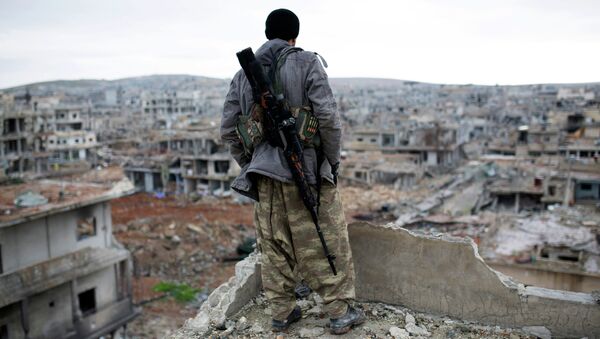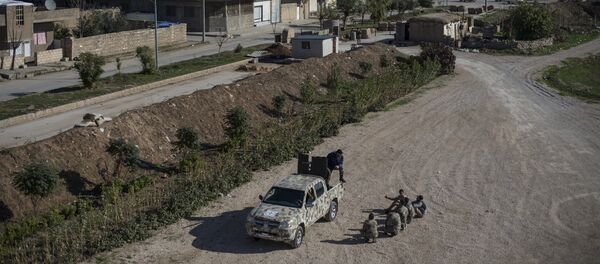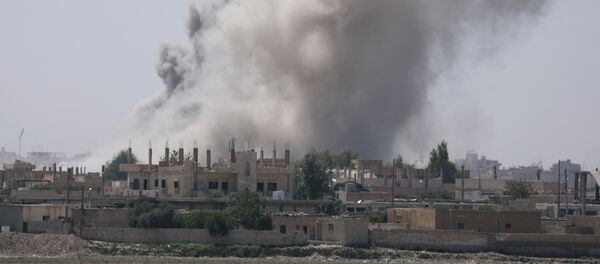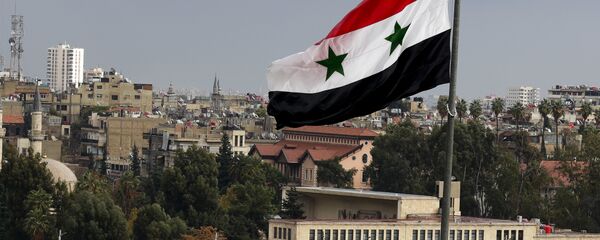The Post spoke to anonymous officials who claimed that Trump is ending the program both because it has proven to be ineffective and to improve relations with Moscow, which has frequently called on the US to withdraw their support for the rebels.
The officials claimed that Trump made the decision during a meeting with CIA Director Mike Pompeo and national security adviser H.R. McMaster, as part of preparations for his much-anticipated July 7 meeting with Russian President Vladimir Putin.
One major consequence of that meeting was the establishment of a ceasefire and a safety zone in southwestern Syria. The Post's sources said that the cessation of arming Syrian rebel groups was not part of the ceasefire negotiations, as that process had already begun.
Trump and Putin have had a touch-and-go relationship in the six months since the former took office, mostly predicated on incidents that occurred in Syria. In April, the United States struck a Syrian government Air Force base in Shayrat, their first and only direct attack against Assad. In June, the Americans shot down a Syrian government fighter jet that was buzzing an SDF position. Russia expressed outrage following both incidents.
The Post framed the decision as Trump capitulating to Moscow. "This is a momentous decision," said one of the Post's anonymous sources. "Putin won in Syria."
"We are falling into a Russian trap," added Charles Lister, a senior fellow at the Middle East Institute. "We are making the moderate resistance more and more vulnerable…. We are really cutting them off at the neck."
Other Post quotes called the cessation "foolish" and a "huge strategic mistake."
No US government source has confirmed or denied the story. The National Security Council, the CIA, and the White House have all declined to comment. White House Spokesperson Sarah Huckabee Sanders told reporters that she "can't at this time" comment on the alleged decision.
So is the program doomed, or is it fake news? The evidence conflicts. Free Syrian Army rebels announced that the CIA froze aid to them in February as they clashed with Daesh-affiliated militant groups, which would support the notion that Trump wished to phase the program out.
But in May, the White House announced that they would increase their efforts to arm Syrian Kurdish rebel groups fighting Daesh. While the Kurdish YPG is mostly occupied with a campaign to retake Raqqa from Daesh, they are no friends of the Assad regime.
High-level administration officials have held that the United States is intent on seeing Assad removed from power. US Ambassador to the UN Nikki Haley said in April that she didn't "see a peaceful Syria with Assad in there" and that "regime change is something that we think is going to happen." US Secretary of State Rex Tillerson said in early July that Washington saw "no long-term role for the Assad family or the Assad regime."
The arming of Syrian Democratic Forces began in 2013 as a way of exerting pressure against Assad, who the Americans have persistently opposed since the beginning of the civil war. It was the centerpiece of former US President Barack Obama's involvement in the war.
The ineffectiveness of the program, as rebel groups steadily give ground to the Syrian government, has brought it under considerable criticism. It was seen as a middle ground option between staying out of the civil war (and failing to enforce US interests) and of directly attacking the Assad government (and potentially escalating against Russia) — a decision that disappointed both hawks and doves.
ARA News reported earlier in July that 8,500 SDF soldiers were trained by the Americans, and over 400 military vehicles were provided to the SDF courtesy of the US.






